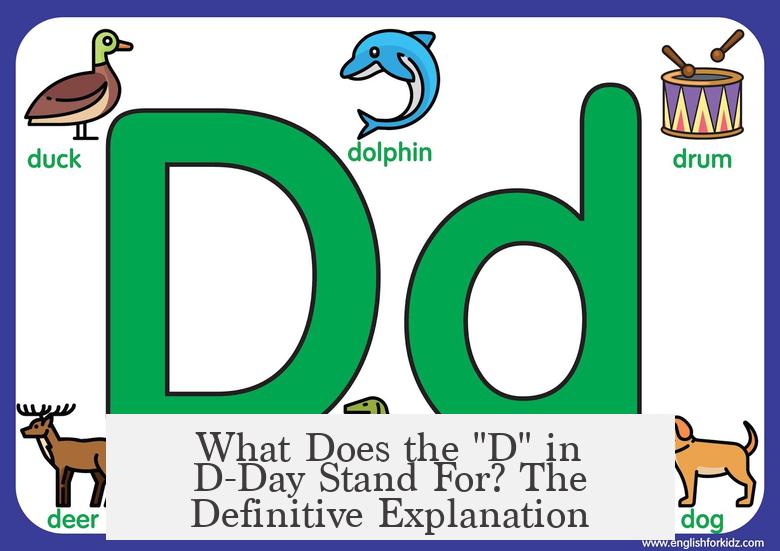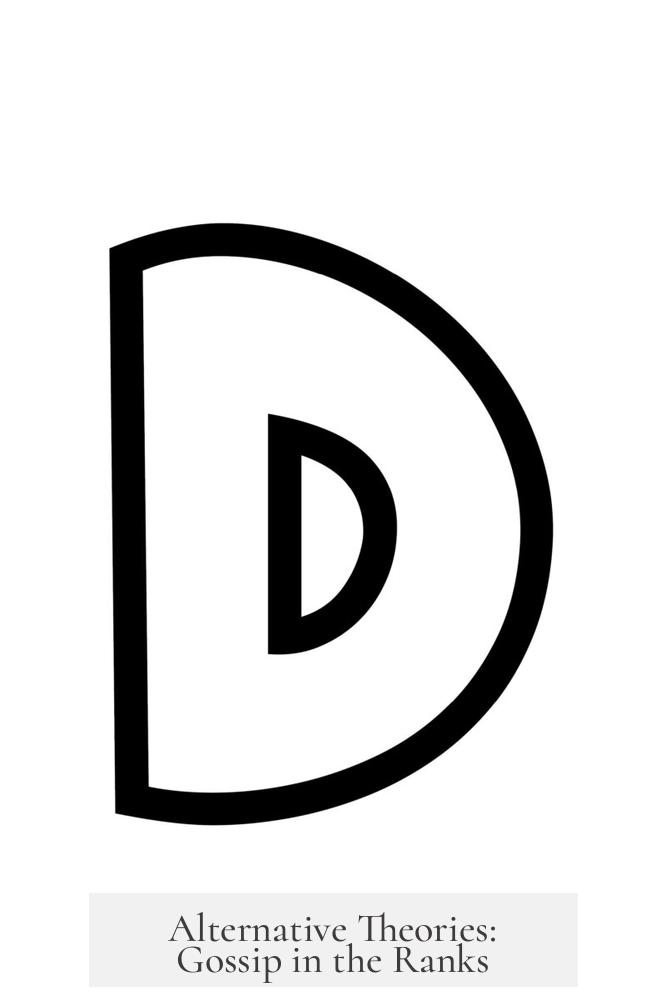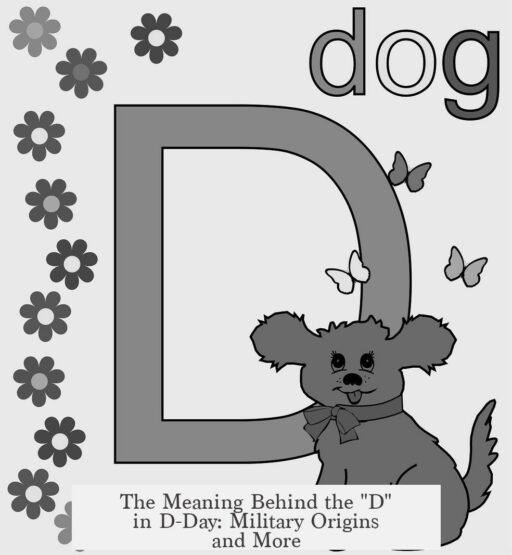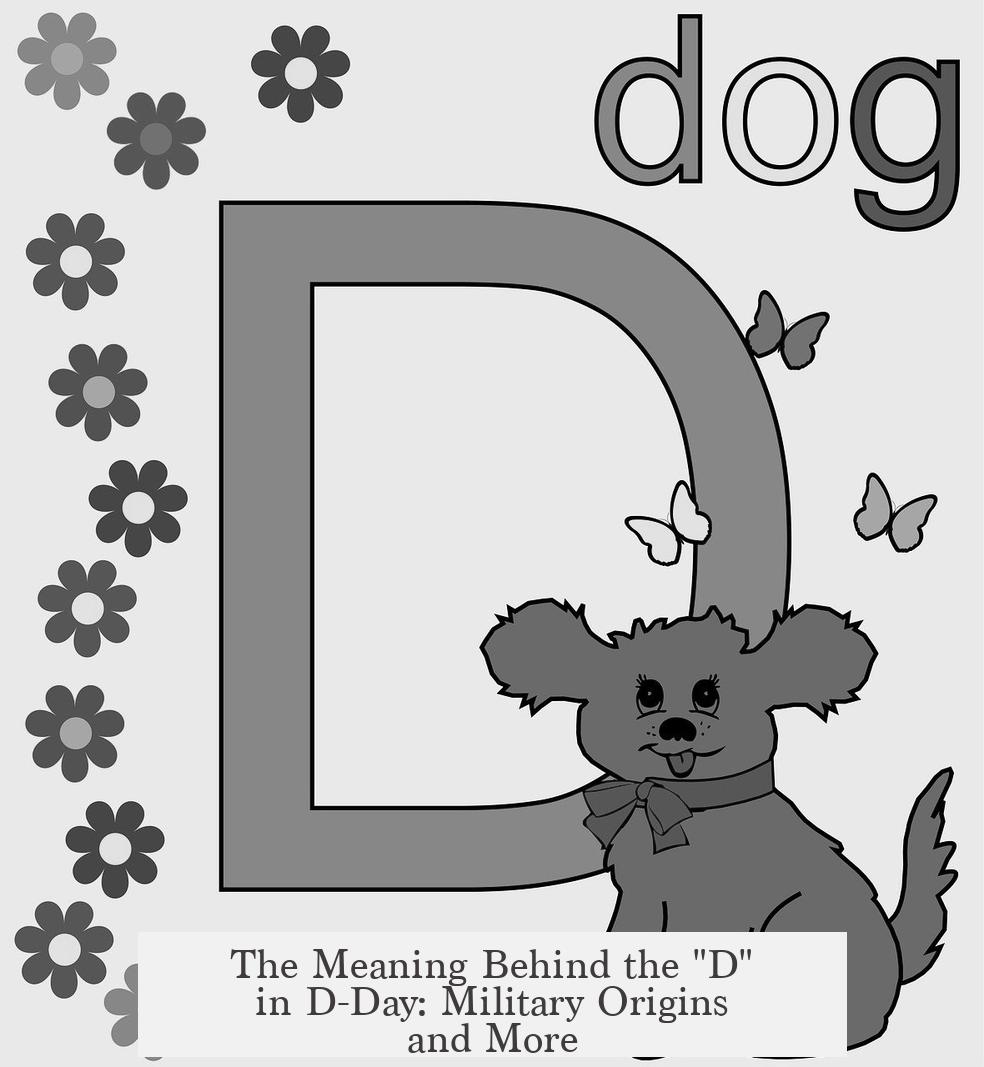The “D” in D-Day stands for “Day.” It is a military term used to mark the day on which a combat operation or attack begins. The term helps planners set schedules relative to this key day, using notations like D−1 for one day before and D+1 for one day after. The phrase “D-Day” essentially means “Day-Day,” but this redundancy serves to clarify timing in military planning.
This terminology is common across military operations, where both D-Day and H-Hour (the exact time an operation starts) standardize references to the start of campaigns. The use of “D” in D-Day became iconic due to the massive Allied invasion in Normandy during World War II, known as Operation Overlord, but it originated as a general term rather than a codename for that specific day.
Alternative interpretations suggest “D” might represent other words such as “Decision,” “Death,” “Date,” or even “Doomsday,” reflecting the operation’s gravity or perceived consequences. However, these are speculative and not backed by official military records. For example, some have thought “D” means “Date,” but this is less precise than “Day.” Others link “D” to the French word débarquement, meaning disembarkation, as the Normandy invasion involved landing troops on beaches. While an interesting connection, the primary and accepted meaning remains “Day.”
Here is a brief outline of key points:
- “D” stands for “Day” in military terminology.
- D-Day marks the start of a military operation or assault.
- Military planners use D±n notation for days before or after the operation.
- Alternatives like “Decision,” “Date,” or “Doomsday” are unofficial and speculative.
- The French word débarquement relates to disembarkation but is not the source of “D.”
What Does the “D” in D-Day Stand For? The Definitive Explanation

You’ve probably heard the term D-Day countless times, especially in historical documentaries and movies about World War II’s Normandy invasion. But have you ever stopped and asked yourself, what does the “D” in D-Day actually stand for? Is it Day? Death? Doom? Or maybe even Decision? Let’s unravel this mystery once and for all, with a splash of wit and plenty of facts.
So, what does the “D” in D-Day stand for? Simply put: it stands for “Day.” It’s as straightforward as it sounds, and actually has a very practical military origin. But there’s more to this story, layered with some intriguing alternative ideas and linguistic twists.
The Military Origins: D is for “Day”
In military jargon, the letter “D” in D-Day stands for “Day.” The term designates the specific day on which a combat operation begins. There’s also “H-Hour,” which marks the exact hour an operation launches.
This is not some arbitrary choice or cryptic secret. It’s a standardized way for armies to communicate complex plans without revealing explicit details. Military planners often talk about D-minus or D-plus days. For instance, “D-3” means three days before the operation starts, and “D+5” means five days after the operation has begun.
This system keeps everyone on the same page without accidentally leaking sensitive information. This is why you often hear phrases like “D-day and H-hour” when referring to various military operations, and why the term stuck around after the famed Normandy invasion during World War II.
The Normandy invasion, officially known as Operation Overlord, became famous partly because the media and history books consistently labeled it D-Day. The simplicity of this term made it iconic, even though every military operation has its own D-Day and H-Hour.
Why Does It Sound Like “Day Day?”
Now, this might raise a fun linguistic headache: if the “D” stands for “Day,” why is it called “Day-Day?” It might sound like a repetitive phrase from a sitcom — but actually, it’s just short for the starting day of an operation.
Think of it like a placeholder: D for “day,” and then you count days before or after it. So “D-Day” really means “the Day,” or the day the action officially kicks off. It’s redundant in casual language but super useful for clarity in military planning.
Alternative Theories: Gossip in the Ranks

Of course, not everyone agrees with the straightforward “Day” explanation. There are alternative, less official, and somewhat more poetic interpretations floating about:
- Decision: Some people think the “D” could stand for “Decision,” as in the day when a momentous military decision comes to fruition. However, there’s no documented military usage to back this up.
- Death: Got a darker vibe? Some speculate it could mean “Death,” referencing the deadly stakes of the invasion. This one’s poetic but not official.
- Date: Another suggestion is “Date,” implying the specific calendar date of the operation. While this seems logical, militaries tend to use neutral terms to avoid leaks.
- Doom/Doomsday: Given the high odds of casualties and the fear of catastrophe, some have suggested “Doom” or “Doomsday.” Sidney Sheldon’s novel “The Doomsday Conspiracy” even mixes this myth, but it’s purely fictional.
The common thread is that none of these alternative explanations have concrete evidence. With all the military records and historical documentation, the accepted truth remains that “D” stands for “Day.”
The French Twist: Débarquement Means Disembarkation
Here’s a fun linguistic detour. In French, the word for “landing” or “disembarkation” is débarquement. The French might jokingly say the “D” in “D-Day” could stand for Débarquement, since the day marked the massive Allied invasion by sea.
This interpretation is not official but shows how language and culture intersect with history. The French angle emphasizes the physical reality and daring of unloading troops under fire, a crucial part of what made D-Day monumental.
Picture French officers whispering: “Ah, oui, that ‘D’ is for débarquement, the day we stormed ashore!”
What Makes This Important Today?
Understanding the true meaning behind “D-Day” helps us appreciate military operations beyond just the dramatic stories. It’s about discipline, planning, and the clarity needed to coordinate complex efforts involving thousands of soldiers, ships, and planes.
It’s a reminder of how language evolves and how simple terms can become loaded with meaning. Plus, knowing that the “D” simply means “Day” strips away the sensationalism and gives the phrase its proper gravity.
Wrapping It Up: The Bottom Line on D-Day
So, next time someone asks you “What does the ‘D’ in D-Day stand for?”, you can confidently answer, “It stands for Day — the day an operation begins.” Yes, that might sound a bit underwhelming compared to “Doomsday” or “Decision,” but it’s the plain, practical truth.
This military shorthand has served as a vital tool for planning since before World War II and remains in use today. It’s a testament to efficiency and precision, values crucial in both war and life.
Have you encountered any other surprising interpretations or myths about D-Day? Share them! Or better yet, tell us your favorite WWII fact that doesn’t get enough spotlight.
What does the “D” in D-Day stand for?
The “D” in D-Day stands for “Day.” It marks the specific day an operation begins. This term is used to indicate the start day in military plans.
Why is it called D-Day instead of a specific date?
D-Day serves as a placeholder for the actual date of the operation. It allows military planners to schedule events as D-minus or D-plus days before or after the start without revealing exact dates.
Are there other explanations for what the “D” stands for?
Some suggest meanings like Decision, Death, Date, or Doom. However, the accepted and official meaning is simply “Day.”
Is the use of D-Day unique to World War II?
No. The term is a common military expression used to indicate the launch day of any military operation, even outside of World War II.
Does the “D” have a meaning in French related to D-Day?
In French, “D” can stand for “Débarquement,” which means disembarkation or unloading. This reflects the nature of the Normandy landings involving troops landing on the beaches.



